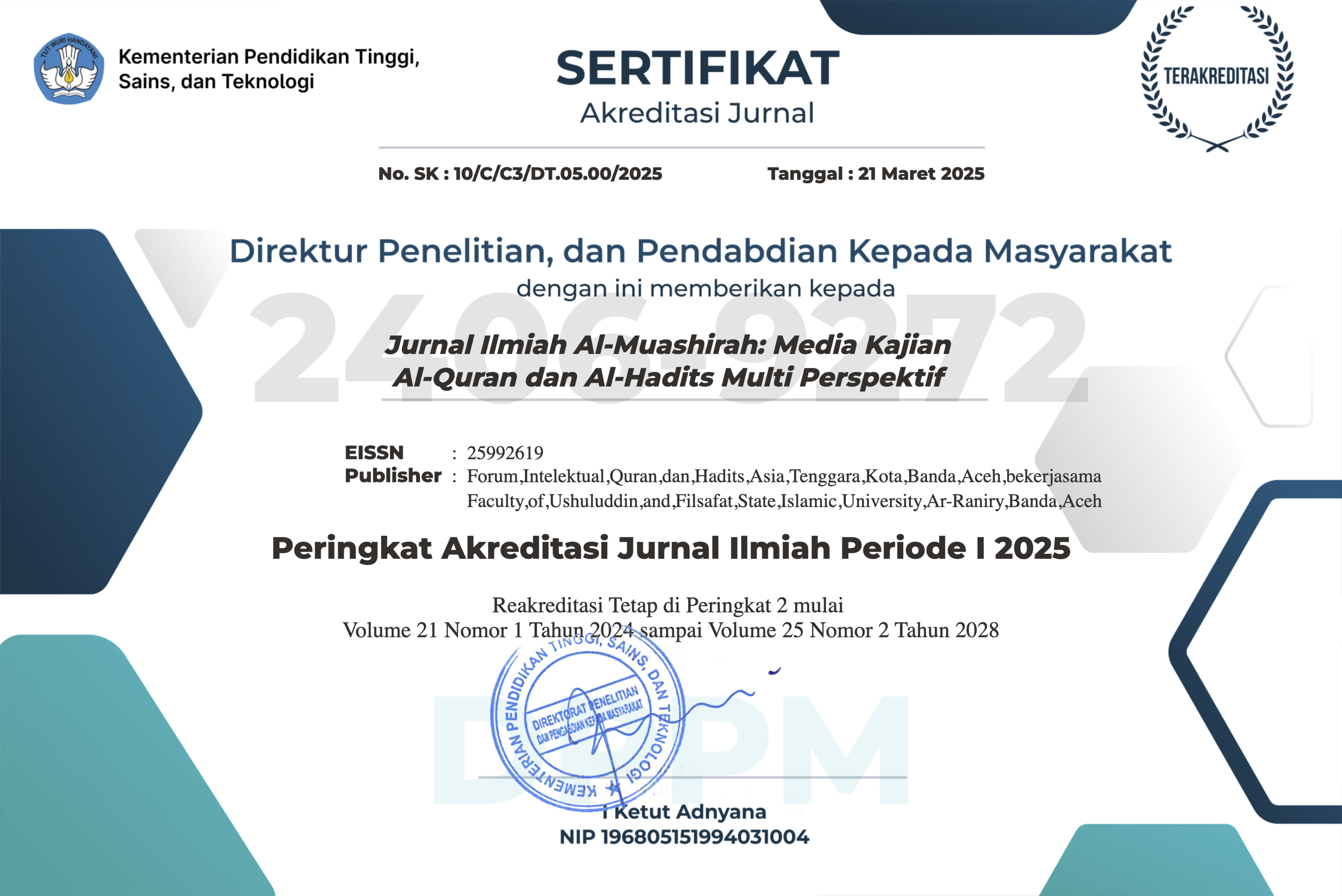KONSEP ANAK ANGKAT DALAM PRAKTEK MASYARAKAT KLUET (Analisis Perspektif al-Qur’an)
DOI:
https://doi.org/10.22373/jim.v16i1.5745Keywords:
Praktek, Anak Angkat, Masyarakat KluetAbstract
The practice carried out by the Kluet community regarding adoption of children is generally good, in which it is worth Sadaqah, maintaining silaturrahmi, aiming to help fellow Muslims, and maintaining a strong brotherhood among fellow Muslims both adopted children because of child leaves, tribal children, senamo, call children, according with Islamic teachings. But with regard to adoption of children due to the couple not having children, then living with foster siblings, there are some things that are not appropriate with the teachings of Islam, which is related to the issue of the status or status of the adopted child. In practice, a part of the Kluet community that adopts their status is like their own biological children, this can be seen from the Family Card and school report cards by using the name of their adopted parents in the child's identity. In relationships mahrampun socially sometimes less attention to the limitations of relationships and genitalia in the family. This is because they consider their adopted children like biological children. Likewise in the matter of marriage, in the adopted family the Kluet community still attaches great importance to emotional ties so that if anyone gets married they will feel ashamed.
Downloads
References
Abd. Aziz Dahlan, Eksiklopedi Hukum Islam, Jakarta: Ichtiar Baru Van Hoeve, 1996.
Ahmad Mustafa al-Maraghi, Tafsir al-Maraghi Juz. XIX, Semarang: Toha Putra, 1993.
Al-Ghandur, Al-Akhwal al-Syakhshiyah fi al-Tasyri’ al-Islami, Beirut: maktabah al-Falah, 2006.
Shuwar min Hayatish-Shahâbah, Dr. ‘Abdur-Rahmân Ra’fat al-Bâsya. Haedah Faradz, Pengangkatan Anak Menurut Hukum dalam Simorangkir, Kamus Hukum, (Jakarta: tt, 1987.
M. Quraish Shihab, Tafsir al-Misbah: Pesan, Kesan dan Keserasian al-Qur’an, Vol. 11, Jakarta: Lentara Hati, 2002.
Ahmad Warson Munawwir, Al-Munawwir, Surabaya: Pustaka Progressif, 1997.
Ali Audah, Konkordansi: Qur’an Panduan Kata dalam Mencari Ayat Al-Qur’an, Bogor: Pustaka Litera antar Nusa, 1996.
Andi Hakim Nasution, Panduan Berfikir dan Meneliti Secara Ilmiah bagi Remaja, Jakarta: Gramedia Widiasarana Indonesia, 1992.
Andi Syamsu Alam dan M.Fauzan, Hukum Peganngkatan Anak Perspektif Islam, Jakarta: kencana, 2008.
Fauzan, Perbedaan Mendasar Akibat Hukum Penetapan Pengangkatan Anak, Varia Peradilan, Varia Peradilan NO 256 edisi Maret 2007.
Nasroen Haron dkk, Ensiklopedi Hukum Islam, (Jakarta: Ichtiar Baru Van Hoeve, 1996.
Rianto Adi, Metodologi Penelitian Sosial dan Hukum, Jakarta: Granit, 2004.
Suharsimi Arikunto, Metodologi Penelitian Suatu pendekatan Praktis, Cet, IX, Jakarta: Rineka Cipta, 1993.
Downloads
Published
Issue
Section
License
Authors who publish in Jurnal Ilmiah Al-Mu'ashirah agree to the following terms:
- Authors retain copyright and grant the journal right of first publication with the work simultaneously licensed under a Attribution-ShareAlike 4.0 International (CC BY-SA 4.0) License that allows others to share the work with an acknowledgment of the work's authorship and initial publication in this journal.
- Authors are able to enter into separate, additional contractual arrangements for the non-exclusive distribution of the journal's published version of the work (e.g., post it to an institutional repository or publish it in a book), with an acknowledgment of its initial publication in this journal.
- Authors are permitted and encouraged to post their work online (e.g., in institutional repositories or on their website) prior to and during the submission process, as it can lead to productive exchanges, as well as earlier and greater citation of published work (See The Effect of Open Access).













